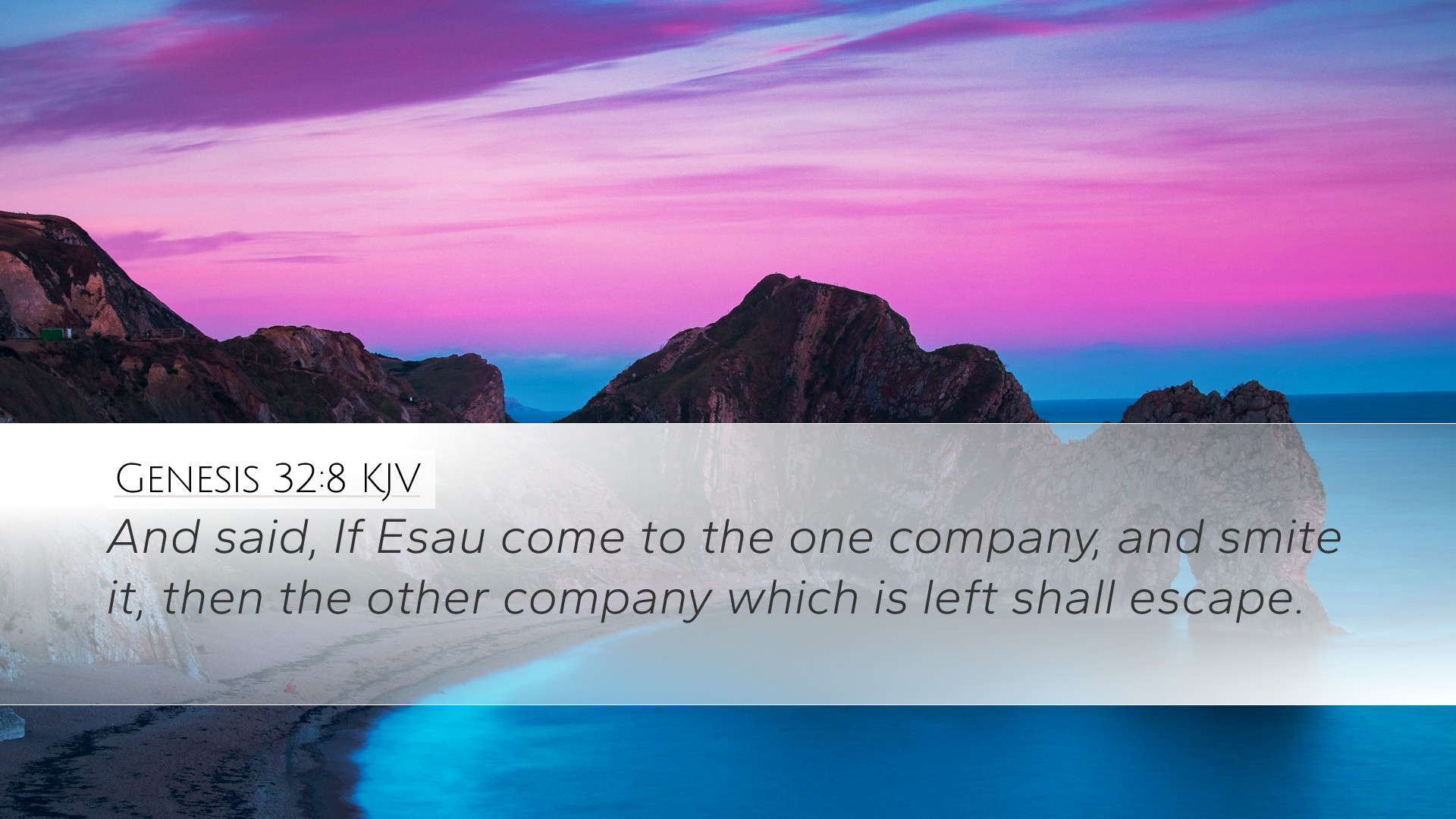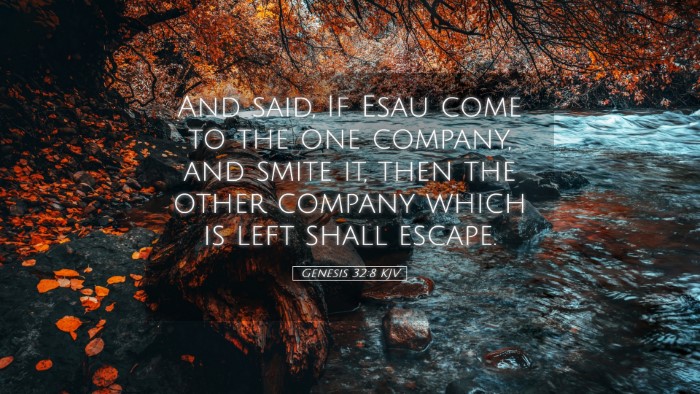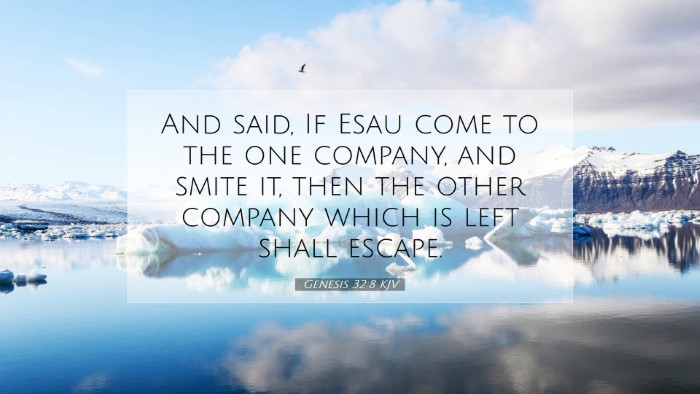Genesis 32:8 - Biblical Commentary
Genesis 32:8 states: "And said, If Esau come to the one company, and smite it, then the other company which is left shall escape."
This verse occurs in a pivotal moment for Jacob, revealing his deep fear of reuniting with his brother Esau after many years of estrangement. This commentary will explore the themes of fear, divine providence, reconciliation, and human strategy, drawing insights from public domain commentaries.
Contextual Overview
This verse forms part of the larger narrative in Genesis where Jacob is returning to Canaan after years in Haran, having fled from Esau due to the threat of violence related to Jacob's deception. His preparations for meeting Esau are critical to understanding this verse.
Historical and Theological Significance
This encounter is significant in biblical history, illustrating the principles of reconciliation and the sovereign guidance of God in the lives of His chosen people. Matthew Henry notes that Jacob’s anxiety reveals his humanity; he is both a patriarch and a man deeply concerned about his safety and the well-being of his family.
Divine Providence
Adam Clarke emphasizes that Jacob, despite his fear, recognizes the divine influence over his circumstances. Interestingly, he prays for deliverance from Esau, acknowledging that while he has acted schemingly in the past, the outcome is in God’s hands. This acknowledgment is essential for anyone studying this text, as it highlights the theme of God's sovereignty in human affairs.
Jacob’s Strategy
Jacob's response to his fear is both practical and spiritual. He prepares to face Esau with humility and sends gifts ahead of himself as a means of softening his brother's heart. Albert Barnes notes that his divided camp serves a tactical purpose—if Esau attacks one part, the others may survive. This underscores a dual reliance on God and a strategic approach to earthly conflicts. This aspect of human ingenuity in conjunction with divine assistance is pivotal in understanding Jacob’s character and the narrative's progression.
Thematic Insights
- Fear and Anxiety: Jacob’s fear is palpable, highlighting the human condition. He embodies the tension of faith and doubt, a theme that many pastors and theologians can reflect upon in their ministry, as congregants often face similar fears in various life situations.
- Reconciliation: The return to meet Esau is not merely about personal safety but is steeped in the larger concept of reconciliation. Expert commentary suggests that this moment is pivotal for both brothers and illustrates God's promise of restoration, teaching that reconciliation may be fraught with risk but is essential for personal and relational healing.
- Prayer and Dependence on God: Jacob's prayer before meeting Esau remains a central focus. It signals a turning point where Jacob acknowledges God’s past faithfulness and seeks His aid, drawing attention to the necessity of prayer in times of distress—a vital lesson for all who engage in theological study and preparation for ministry.
- Human Agency: Despite being a man of God, Jacob acts with agency, providing a model for believers to pursue wisdom and take action while still relying on divine providence. This theme elucidates the balance between faith and works, comprising substantial insights relevant for theological reflection.
Application for Pastoral Ministry
For pastors, Genesis 32:8 serves multiple roles in sermon preparation. It challenges ministers to address the issue of fear among their congregants and to lead towards reconciliation in broken relationships. The insights from Matthew Henry resonate deeply; he advises that one must face challenges with both faith and wisdom, an imperative for pastoral counselors guiding individuals through conflict resolution.
Conclusion
Genesis 32:8 provides rich insights interconnected with themes of divine sovereignty, human anxiety, and the importance of reconciliation. By analyzing this verse through the lens of public domain commentaries, scholars and theologians are encouraged to embrace the complexity of Jacob’s character and situation. This text invites continuous reflection on our relationship with God, our fears, and our responsibilities in ensuring that reconciliation is pursued, all while relying on God’s steadfast love and guidance.
Thus, while facing life’s uncertainties, as Jacob did, we are urged to prepare, pray, and trust in God’s overarching plan, acknowledging our own human limitations and the necessity of community and divine presence in reconciling our relationships.


